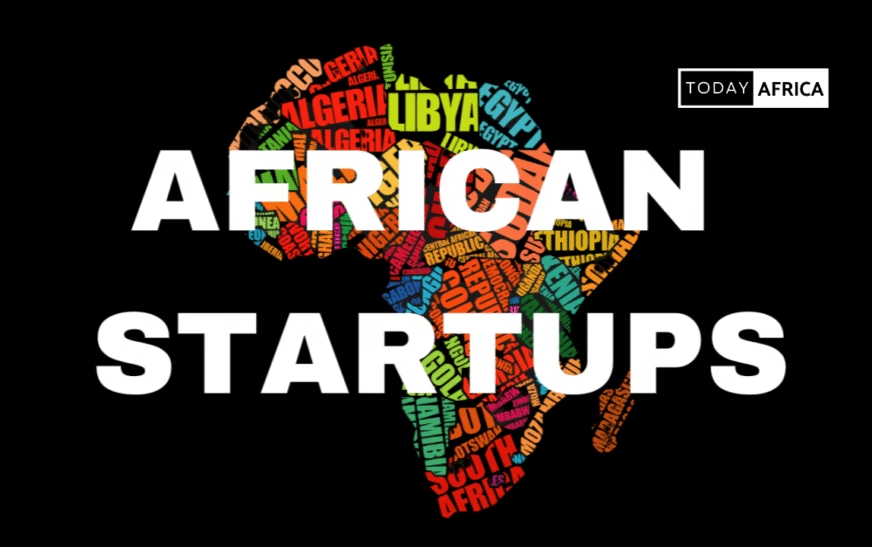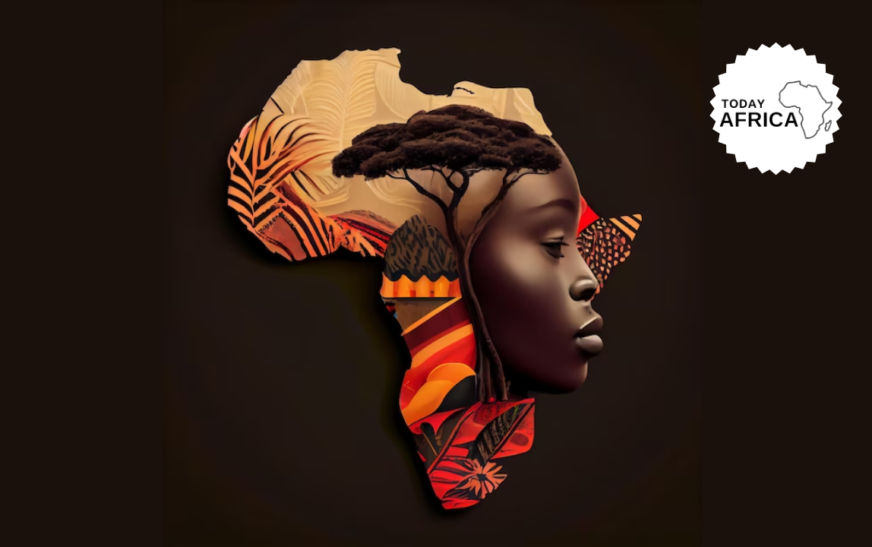If you walked around the main co-working spaces of Lagos or Nairobi five years ago, you might have felt the hum of ambition, but you might not have seen the scale that’s visible today.
In 2025, something is different. The venture-capital flows are stronger (though still fragile), the number of credible startups is rising, and the global investor gaze is sharpening.
Mapping the top startup ecosystems in Africa isn’t an academic exercise.
It matters because these ecosystems are where jobs, innovation and economic pathways are being forged. And to be honest Africa has often been described as a “market of the future”. What we’re seeing is: the future is now.
In this article, we’ll discuss the top startup ecosystems in Africa and compare them in terms of funding, number of startups, accelerators, and ecosystem maturity.
Top 4 startup ecosystems in Africa
1. Lagos
If you had to pick one city as the face of Africa’s startup race, Lagos is it.
For many reasons: the population scale, the commercial activity, the youthful churn, and the “digital first” jump that many services have made here.
A recent report by Dealroom ranked Lagos as the fastest-growing tech ecosystem globally in 2025, thanks to an 11.6× increase in startup enterprise value since 2017.
The ecosystem is said to be worth around US$15.3 billion (per that report). That’s a big number, especially when one considers the many structural headwinds in Nigeria.
In the fintech vertical alone, Lagos boasts 503 active fintech startups (the most of any African city).
These firms have raised, collectively, US$6.03 billion in funding. That scale, wow. It means Lagos isn’t just “up and coming” but actively participating at high levels.
When you look around Yaba, Lagos’s tech-district, you see a mix of early-stage startups, local accelerators and a small but growing investor ecosystem.
The challenge is that many of these startups still face infrastructure issues (power, internet reliability), regulatory headwinds and currency volatility.
One Financial Times article noted that although Lagos offers “immediate scale”, the talent exodus and infrastructure constraints remain real.
What drives it?
- Large domestic market: Nigeria’s population is over 200 million, and Lagos carries a large chunk of the informal + formal economy.
- Fintech first mover advantage: digital payments, mobile money, fintech-enabled services have been natural in Nigeria.
- Diaspora and local capital getting involved: more Nigerians abroad reinvesting, more local LPs waking up.
What holds it back?
- Infrastructure (electricity, internet reliability) still uneven.
- Regulatory and macroeconomic uncertainty (currency risk, inflation) discourages some investors.
- Over-focus on fintech: other sectors still need more maturity and funding.
In sum: Lagos is heavy, high-potential and active, but still needs more ecosystem depth and horizontal diversification.
2. Nairobi
Moving east to Nairobi, the story is different in tone but no less compelling. If Lagos is about scale and speed, Nairobi is about innovation and regional reach.
According to data from StartupBlink, Nairobi is ranked #107 globally, with a growth rate of 22.2%, positioning it among Africa’s most dynamic hubs. Another report notes that East Africa remains hot for tech, with Nairobi acting as the anchor city.
Kenya’s ecosystem (led by Nairobi) raised approximately US$227 million in H1 2025, according to one industry index. The fintech sector remains strong, but there’s also momentum in agritech, healthtech and climate tech.
For example, the mobile money revolution (think M‑Pesa) has been fertile ground for innovation. The fact that a large share of Kenya’s startups are built on mobile-first paradigms gives Nairobi a somewhat different flavour.
Nairobi has many accelerators, co-working spaces, and a relatively open culture for founder-investor networking. I stumbled on a Reddit thread where someone said:
“It’s best to network into the startup ecosystem in person by attending events and talking with investors and other founders… Go to the big co-working spaces (ikigai, ihub, Nairobi Garage, Kofisi)…”
Strengths
- Strong regional hub: East Africa, with Kenya at the core, is increasingly appealing for regional deployments.
- Mobile-first, welconnected founders: the ecosystem knows what it’s doing in payments, mobile, logistics.
- Government initiatives: Kenya’s startup-friendly policies have helped (though not always perfect).
Challenges
- Scale: many startups are good, but scaling remains harder — moving from MVP to global expansion is still tricky.
- Access to large cheques: compared to Lagos or Cairo, maybe less mega-rounds.
- Talent retention: as with many African cities, competition from abroad exists.
So Nairobi is less “superwide scale” than Lagos right now, but perhaps more diversified and regionally connected.
Read Also: How Currency Volatility Impacts African Startup Valuations
3. Cape Town
Turning to southern Africa, we land in Cape Town. Possibly the “most mature” of the ecosystems we’re discussing, at least in terms of infrastructure, talent base and global connectivity.
According to StartupBlink’s 2025 index, South Africa ranks #52 globally among countries, with Cape Town (and Johannesburg) leading the way.
One commentary noted that H1 2025 South African startups raised US$344 million, with the country accounting for about 25 % of total Africa startup funding in that half.
Cape Town has a reputation for fintech, cybersecurity, AI/ML, clean-energy tech. For example, fintech company Yoco (headquartered in Cape Town) has over 200,000 customers and has raised large capital.
This indicates that the ecosystem isn’t just hype, some established firms are operating at scale.
What makes Cape Town attractive?
- Relative infrastructure advantage: compared to many African cities, South Africa offers better-developed internet, legal systems, financial services and global linkages.
- Talent: There’s a more developed pool of tech professionals, often trained locally and internationally.
- Global company presence: Many multinationals have their African HQ or region-head operations in Cape Town.
But the challenges:
- Growth rate: Some reports suggest that while Cape Town is mature, its growth rate in some years trails younger hubs.
- Market context: The South African economy faces headwinds (slow growth, issues of inequality, regulatory burdens) which affect risk appetite.
- Scale vs global: For many startups, global expansion remains harder even if domestic market size is sufficient.
In short: Cape Town represents the “big kid on campus” in Africa’s startup world. Scale may not be as explosive as Lagos, but sustainability and depth may be stronger.

4. Cairo
Often, when Africa’s startup maps are drawn, West and East Africa get the headlines. However, North Africa, with Cairo in Egypt at its centre, is quietly stepping up. I think Cairo deserves more attention.
Cairo, ranked #90 globally by StartupBlink, climbed seven places in 2025.
A separate overview noted that Egyptian startups raised US$339 million in H1 2025 (a jump from earlier years) and that Cairo is leading in North Africa.
Also, in May 2025, Egypt captured 31% of disclosed startup funding for the year across Africa.
Strengths
- Strategic location: Cairo sits at the junction of Africa, Middle East and Mediterranean trade and talent pathways.
- Talent base: Egypt has a large young workforce, multilingual, and increasingly tech-savvy.
- Government support: Egypt’s digital economy strategy, free zones and startup acts are improving the enabling environment.
- Sectoral diversity: Beyond fintech, you see proptech, e-commerce, AI, digital infrastructure in motion (for example startup Nawy raised US$75 million in May 2025).
Challenges
- Ecosystem maturity: Compared to Lagos or Nairobi, the Cairo startup ecosystem is younger and less globally integrated.
- Capital depth: While growth is strong, large rounds and exit pathways remain less frequent.
- Regulatory & market risk: Political and macroeconomic dynamics can deter some investors.
Cairo is rising, and perhaps a useful “next wave” bet for those looking beyond the more established hubs.
Related Story: How Local Investors are Transforming African Venture Capital
Comparative reflections – data, dynamics & insights
When you stack these four ecosystems side by side, a few patterns emerge — some expected, some subtle.
1. Funding concentration and growth
A few statistics jump out. According to data from V, African startups raised US$2.2 billion across 58 deals by September 2025, bringing the year-to-date close to surpassing the entire 2024 totals. Also, the “Big Four” countries – Nigeria, Kenya, South Africa, and Egypt – account for 84% of all ecosystem funding in 2025. So, the heavyweights matter a lot, and liquidity is still uneven.
2. Scale versus growth
Lagos enjoys scale (huge market, many startups, big valuations). Nairobi and Cairo show faster growth rates. Cape Town shows operational maturity. In other words: you don’t get everything at once. An ecosystem might win in one dimension (size) but lag in another (growth rate or depth).
3. Sectoral specialization
Fintech remains dominant across the top 4 startup ecosystems in Africa. But you’re also seeing diversification: agritech (Kenya), clean-tech (South Africa), proptech (Egypt). If you were to pick a startup, you might ask, Is the hub tuned to your sector?
4. The role of infrastructure & talent
Mature ecosystems (Cape Town) benefit from better physical infrastructure (internet, power, coworking), stronger talent pools, and closer global connections. Emerging ones (Cairo, Nairobi) compensate with agility, leaps in mobile technology, and regional markets. Scale still matters a lot: for instance investors often like large market potential because they know monetisation in Africa is hard.
5. Ecosystem “gaps” remain
- Exits remain relatively few: big exits are still rarer in Africa than in Silicon Valley or Europe, which means investors look for fewer safeguards.
- Late-stage funding is thinner: Many startups struggle after Series A to Series B to growth.
- Regional fragmentation & regulatory risk: Cross-border scale across Africa is still hard; different countries, languages, regulatory regimes.
- Talent drain: Even strong hubs lose tech talent to global markets.
Read Also: Inside the Rise of Convertible Notes and SAFEs in African Venture Deals
Startups in the mix
To bring this from data to lived stories, let’s look at two companies, one from Lagos, one from Cairo, that illustrate the ecosystem dynamics.
Moniepoint (Lagos)
Based in Lagos, Moniepoint raised a US$110 million round (October 2023) and achieved unicorn status. This shows the possibility of scale. Moniepoint works in the fintech payments space, servicing agents, merchants and individuals.
But even Moniepoint’s story is shadowed by broader ecosystem issues like infrastructure headache, currency risk, and the need to expand beyond Nigeria to truly “Africa-wide”. For younger startups in Lagos, the lesson is: you can aim high, but wet roads and blackouts still exist.
Read Also: Inside Moniepoint’s Journey: From POS Terminals to Africa’s Fintech Powerhouse
Nawy (Cairo/Egypt)
In May 2025, Egyptian proptech startup Nawy raised US$75 million (Series A plus debt) to revolutionise the home-buying process with AI, virtual tours, and mortgages.
The founder story: Egypt’s young developer workforce, growing middle-class housing demand, and access to regional capital (including debt) all converged.
This isn’t a fintech story; it’s a building-ecology & proptech story. It suggests Cairo is becoming more than a copy of Lagos or Nairobi; rather, carving its own niche. For founders in North Africa, this is significant.

Observations for founders, investors & policymakers
A few things founders, investors and policymakers should keep in mind.
Founders
- Pick your hub partly based on your sector and how your value proposition scales. For fintech in Nigeria? Lagos makes sense. For agritech across East Africa? Nairobi or broader Kenya may work better.
- Think about scale early. African markets often reward products that can scale across borders. Investors will often ask: can you expand beyond your home country?
- Build traction before expecting large rounds. In many ecosystems, proof of model trumps “idea only”.
Investors
- Expect both promise and risk: yes, the numbers are improving, but structural risks remain. You may undervalue the local market’s complexity.
- Think ecosystemally. Investing in just one company is fine, but understanding the hub’s talent, infrastructure, regulation gives you a better sense of durability.
- Diversify sectors. Fintech is hot, but if every investor focuses only on fintech, valuations may get frothy or you may miss the next wave (agritech, climate tech, proptech, AI infra).
Policymakers
- Simplify regulation and ensure policy incentives are real. Ecosystem growth often accelerates when there’s clarity around startup laws, sandboxes, tax incentives.
- Invest in infrastructure: digital infrastructure, reliable electricity, connectivity. These are foundational. Lagos’s growth, for instance, is partly hindered by power and connectivity issues.
- Support ecosystem building: accelerators, mentorship, founder networks, regional co-working hubs matter. The “hard” infrastructure is vital, but so is the “soft” infrastructure.
Conclusion
Startup ecosystems in Africa are no longer fringe stories or future projections. They are present, complex, sometimes messy, but increasingly real.
Lagos shows what scale looks like. Nairobi shows regional innovation. Cape Town shows where maturity can lead. Cairo shows the next wave.
But the journey isn’t over. The next chapter may involve deeper sectoral expansion (climate tech, AI, proptech), stronger exit markets (so investors see real returns), and more cross-border scale (so startups don’t stop at country borders).
For Africa’s dream of home-grown tech giants to become reality, the ecosystem map has to expand, both in geography and depth.
The only question now is: are you ready?
Leave a comment and follow us on social media for more tips:
- Facebook: Today Africa
- Instagram: Today Africa
- Twitter: Today Africa
- LinkedIn: Today Africa
- YouTube: Today Africa Studio
















